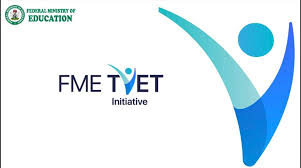Education
Additional 12 State-owned Tertiary Institutions Submit Student Data to NELFUND

The Management of Nigerian Education Loan Fund (NELFUND) has announced the onboarding of an additional 12 state government-owned tertiary institutions to the student loan application portal.
This is disclosed in a statement made available to newsmen by Nasir Ayitogo, Head, Media and Public Relations, NELFUND, on Wednesday in Abuja.
Ayitogo said that the expansion came following the successful submission and verification of data completeness and accuracy required from the institutions.
He said with the latest addition, the total number of participating state government-owned tertiary institutions had been increased from the initial 36 to 48.
Ayitogo urged all institutions yet to submit their students’ data to the Student Verification Portal (SVS) of the fund to do so to enable their students benefit from the scheme.
He advised states whose data had been captured and successfully uploaded to urgently sensitise their students to apply.
He said doing this would bring succour to students, who were struggling financially whilst also bringing guaranteed revenue to the institutions.
Ayitogo urged students from the newly added state government-owned tertiary institutions to visit www.nelf.gov.ng to apply for the loan, while noting that students’ data from 121 institutions was still outstanding.
He listed the 12 additional state-owned tertiary institutions as Abia State Polytechnic, Benue State University, Makurdi, College of Education, Waka-Biu and University of Medical and Applied Sciences Enugu State.
Others are Aliko Dangote University of science and Technology Wudil, Kano State, Kwara Polytechnic, Lagos State University of Science and Technology and Ibrahim Badamasi Babangida University Lapai, Niger State.
In the list are also Olabisi Onabanjo University, Ago-Iwoye, Ogun State, Abraham Adesanya Polytechnic, Taraba State Polytechnic and Yobe State University.
(NAN)
Education
Unresolved Renegotiation: ASUU Sets For Another Showdown With FG

From Ene Asuquo, Calabar
As a result of the unresolved renegotiation between Academic Staff Union of Universities and the Federal Government of Nigeria, the Union has sent a message of
Imminent danger to industrial harmony in Nigerian University system.
In a press statement in Calabar, ASUU has warned that they would embark on an indefinite strict action in a few days to come because of federal government’s insincerity in keeping to terms after the 14-day warning strike and another four weeks of grace was given which will expire on the 21st of November 2025.
According to them, “We have gathered not merely as members of ASUU, but as citizens whose patience has been stretched far beyond its elastic limits.
Occasioned by broken promises, shattered dreams, and deepening crises in the education sector, we hereby express deep concern over government’s inconsistency and dilatory approach to agreements, engagements and negotiations”.They stated that the renegotiation of the 2009 FGN/ASUU Agreement was not a gift. It was an obligation to Nigerian University Lecturers. Government owes Lecturers their due wages and her citizens and the dignity of decent and functional education.
They maintained that the fight is for the survival of Nigeria’s intellectual soul, while outlining the issues in contention to include: renegotiation of workers’ Conditions of Service since 2009 in tandem with changing times and inflationary trends over the years, funding for revitalization of infrastructures, University autonomy, academic freedom, undue proliferation of Universities without assured sustainable funding.
The Union stressed further that Government grandstanding, insensitivity and silence are deliberate to destroy academic system and ASUU is ready to shut down totally and completely in a few days.
Recall that ASUU gave the FGN 14-day ultimatum to conclude the renegotiation which according to them was enough to made government do the needful and they watched to no avail. ASUU then graduated to 2 weeks Warning Strike, which was suspended after NEC of 22nd October, 2025 due to the intervention of well-meaning Nigerians, the Nigeria Labour Congress, parents and students to create enabling opportunity for a meaningful dialogue.
“Let the Federal Government return to the path of truth, fairness and good conscience. Let the government hear us clearly: they cannot destroy public education, starve lecturers with a slavish salary, deduct and withhold part of legitimate Lecturers salaries by way of 3rd party deductions, deny students a conducive environment for effective learning and expect peace”.
“ASUU has been consistent: we are not asking for personal enrichment. We are demanding that the government fulfills its obligations to the Nigerian people by funding education properly, otherwise, we shall resume the STRIKE itself; not the father or mother of all strikes”.
“This will be a total, comprehensive and indefinite strike action. We are ready to shut down for as long as the government wants it to last because he who has been pushed down fears no fall Education is the foundation of personal and national development,” the stated.
“The problem is not paucity of funds as the government posits but lack of political will to invest in the development of Nigeria. The figures and empirical data from Federation Account Allocation Committee (FAAC) has revealed that in 2022, States received N3.02 trillion while in 2024, the figures rose to N5.81 trillion with an increase of over 62%. Similarly, federal allocations rose from N3.42 trillion in 2022 to N4.65 trillion with an increase of over 70%. This is clear evidence that the government has the capacity to pay Lecturers”. They maintained.
Education
TVET: FG Begins Nationwide Training for 100,000 Youths in 1,500 Centers

The Federal Government has begun training no fewer than 100,000 youths in 1,500 Technical and Vocational Education and Training (TVET) centers across the country.
The Minister of State for Education, Prof. Suwaiba Sa’id, made the announcement on Monday in Kano.
This was during an inspection visit to Bayero University, Kano (BUK), where Sa’id assessed ongoing vocational training initiatives supported by the ministry.
“The administration is committed to expanding opportunities for our youths to acquire industry-relevant skills that will make them self-reliant and employable,” she said.
The minister said that the programme covered a wide range of trades including carpentry, welding, plumbing, ICT, automobile repair, tailoring, among other skills in high demand.
She said that the initiative was designed to ensure that beneficiaries of the programme became self-reliant, job creators and active contributors to the nation’s economic growth.
According to her, the provision of starter packs will complement the government’s drive to reducing unemployment and addressing the persistent skills gap in the country.
“The administration of President Bola Tinubu is committed to strengthening technical and vocational education because it remains a critical pathway to empowering young Nigerians.
“Providing starter packs will enable our youths to put their training into practical use immediately,” she said.
Sa’id commended BUK for its commitment toward implementing the programme.
She said that the ministry would continue to partner institutions that promoted innovation, productivity and entrepreneurship.
Also speaking, the Vice-Chancellor, BUK, Prof. Haruna Musa, said the programme was timely as the country continued to grapple with low employability, reduced productivity and slow economic growth.
Those, he said, were due to inadequate skills among its youth population.
Musa was represented by the Deputy Vice-Chancellor (Academic), Prof. Ahmad Tsauni.
He said the programme was designed to equip young Nigerians with practical and entrepreneurial skills that would enhance job creation, innovation and national development.
Musa encouraged participants to take full advantage of the opportunity by learning diligently and transforming themselves into agents of positive change in their communities.
“BUK will continue to invest in research, innovation and strategic partnerships to expand opportunities for youth employment and industrial growth,” he said
The vice-chancellor commended the Federal Ministry of Education and other partners for their support in ensuring the successful take-off of the programme.
A beneficiary, Muhammad Ali lauded the government for, what he described as, the timely gesture.
He expressed appreciation, describing the initiative as a crucial step toward youth empowerment and national development.
Education
Mainstream Energy to Upgrade ABU Roads, Facilities

Mainstream Energy Solutions, a privately-owned power-generating company, has offered to support infrastructure renewal at the Ahmadu Bello University (ABU), Zaria.
This was disclosed in a statement issued on Saturday in Zaria by the Director, Public Affairs Directorate of the university, Malam Auwalu Umar.
He said the company also announced plans to partner with the institution on its 45th convocation scheduled for January 2026.
According to him, the form has also pledged to assist in the upgrade of the university’s internal roads, most of which were constructed in the 1960s and have never been rehabilitated.
“The institution’s nearly 30 kilometres of internal roads across its two campuses are currently in a state of near collapse.
“The company also indicated readiness to support the rehabilitation of toilets and improvement of water supply on the campuses.
“As part of preparations for the convocation, the company will give the 1,000-seater Abdullahi Mahadi Conference Centre a facelift ahead of the convocation lecture,” Umar said.
He quoted the Vice-Chancellor, Prof. Adamu Ahmed, as expressing deep appreciation for what he described as a long-standing and growing partnership since 2017.
He recalled paying a courtesy visit to the company in Abuja earlier in the week to thank it for its sustained support.
He stated that mainstream energy’s interventions had consistently come at crucial moments, especially when the university’s energy cost escalated to an unsustainable N370 million in May 2025.
Ahmed said the university was particularly excited about the company’s plan to replicate a Kainji Dam-model power plant at ABU’s Faculty of Engineering; a project expected to revolutionise practical training and research.
He also described as “a powerful demonstration of belief in the future of Nigerian youths” the firm’s decision last week to convey 20 ABU students via chartered flight to the Kainji facility for a hands-on excursion.
“Mainstream Energy Solutions has truly set a benchmark for industry-academia collaboration in Nigeria, aligned with national development goals,” Ahmed said.



















